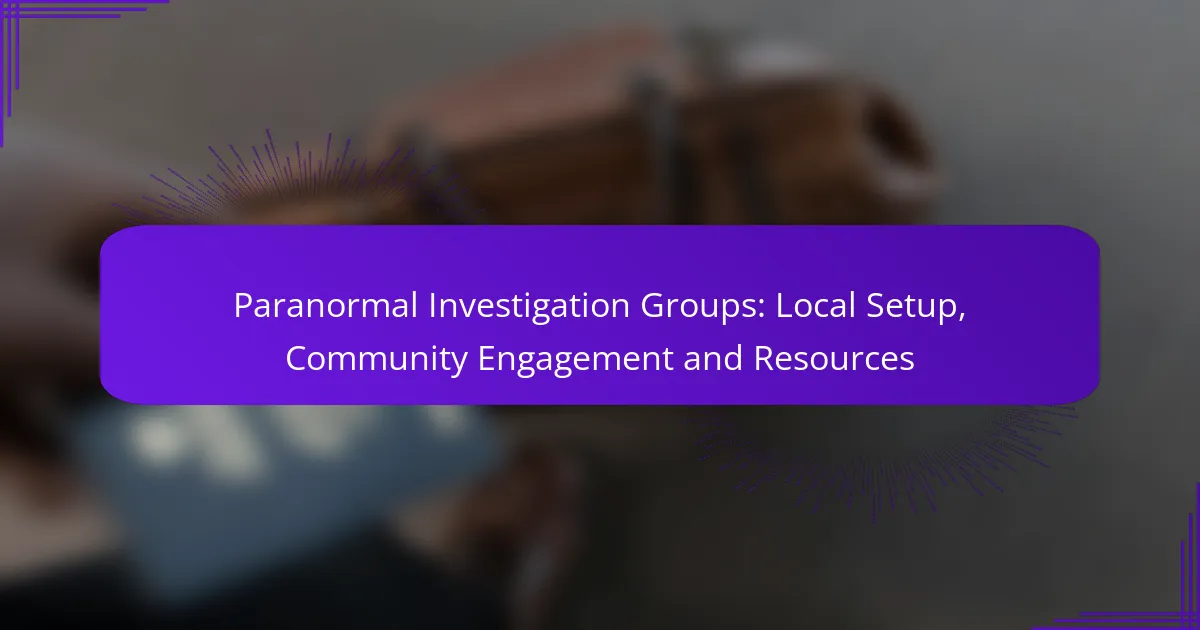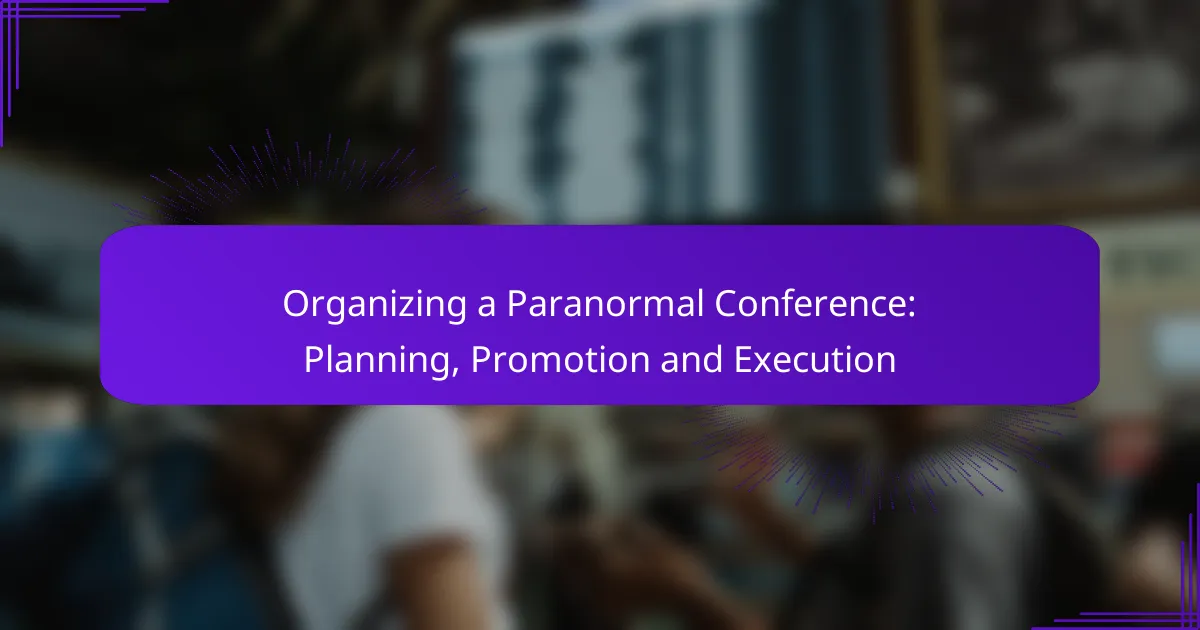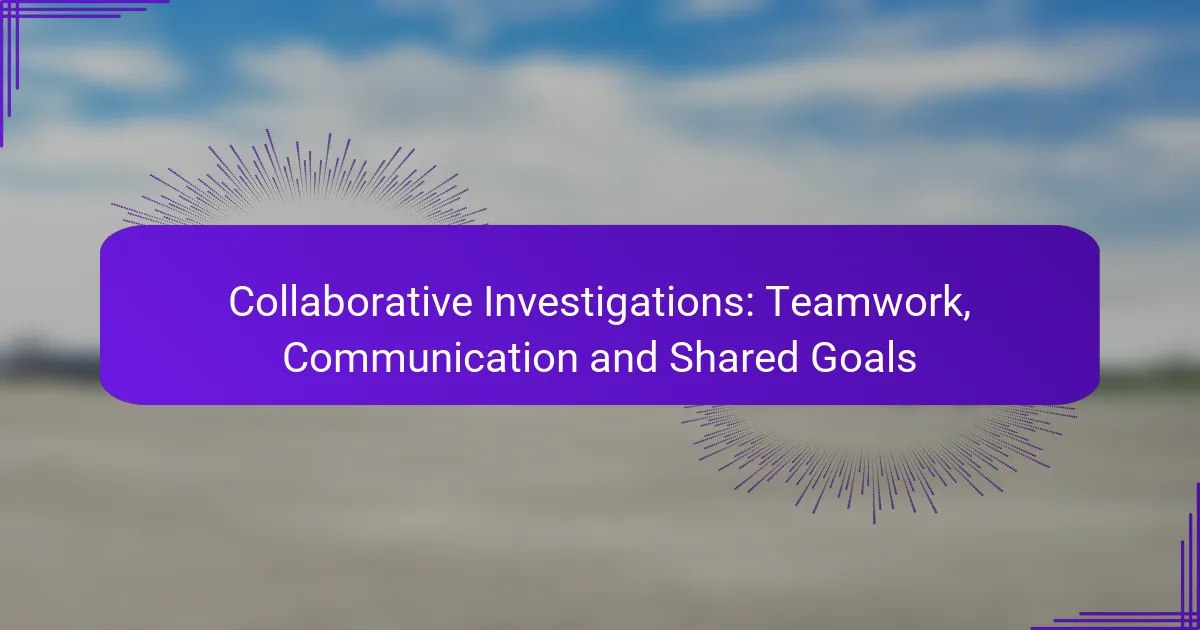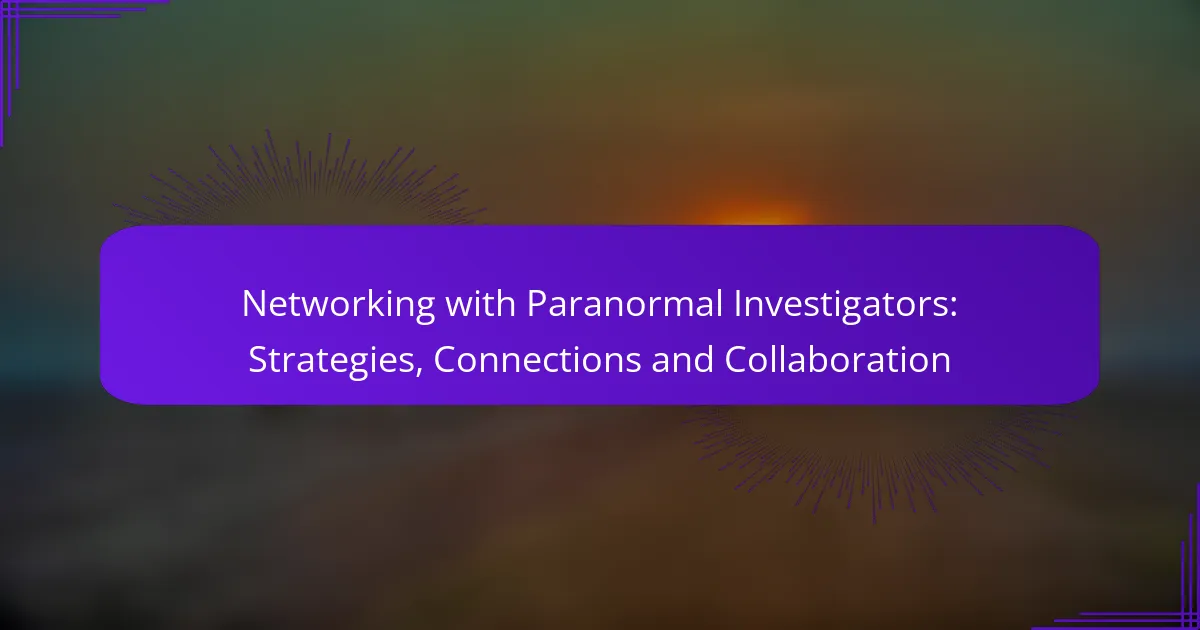Starting a paranormal investigation group can be an exciting endeavor for those intrigued by the unknown. It involves not only gathering passionate individuals but also engaging with the community and utilizing various resources to ensure respectful and effective investigations. By fostering relationships and promoting shared interests, these groups can enhance their visibility and attract new members while exploring local history and the paranormal.
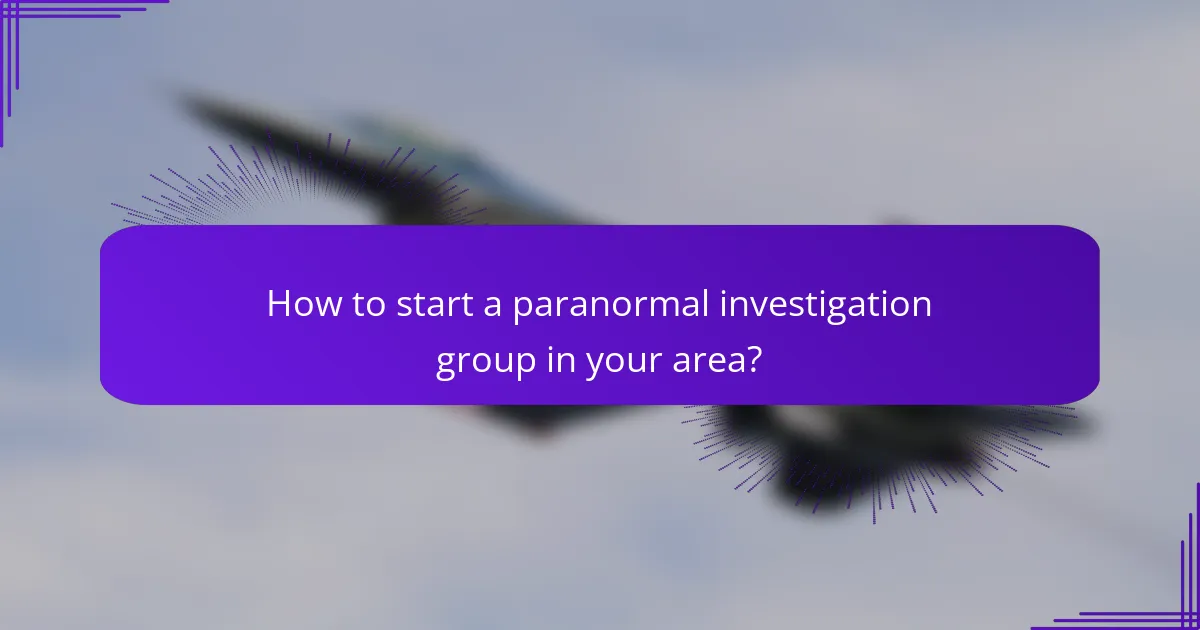
How to start a paranormal investigation group in your area?
Starting a paranormal investigation group involves gathering like-minded individuals interested in exploring the unknown. It requires planning, community engagement, and access to necessary resources to ensure a successful and respectful approach to investigations.
Identify local interest and community
Begin by assessing the level of interest in paranormal activities within your community. You can conduct informal surveys or host a small meet-up to gauge enthusiasm. Connecting with local enthusiasts can help you establish a solid foundation for your group.
Consider reaching out to local clubs, libraries, or community centers that may have an interest in the paranormal. Engaging with these organizations can provide a broader network and potential members who share your passion.
Gather necessary equipment and resources
Essential equipment for paranormal investigations typically includes EMF meters, digital voice recorders, infrared cameras, and flashlights. Start with basic tools and gradually expand your inventory as your group grows and funds allow.
Research local suppliers or online retailers for affordable equipment options. You may also consider pooling resources with group members to share costs and access higher-quality tools. Always prioritize safety and ensure all members are familiar with the equipment before investigations.
Establish group guidelines and objectives
Creating clear guidelines and objectives is crucial for maintaining focus and respect during investigations. Outline the group’s mission, such as exploring local legends or documenting experiences, and establish protocols for respectful behavior during investigations.
Consider developing a code of conduct that emphasizes safety, respect for locations, and ethical treatment of any entities encountered. Regularly revisit and update these guidelines as the group evolves to ensure they remain relevant and effective.
Promote the group through social media
Utilizing social media platforms is an effective way to promote your paranormal investigation group and attract new members. Create dedicated pages or profiles on platforms like Facebook, Instagram, or Twitter to share updates, findings, and upcoming events.
Engage with your audience by posting intriguing content, such as investigation highlights or local paranormal news. Encourage members to share their experiences and invite friends to join, fostering a sense of community and excitement around your group’s activities.
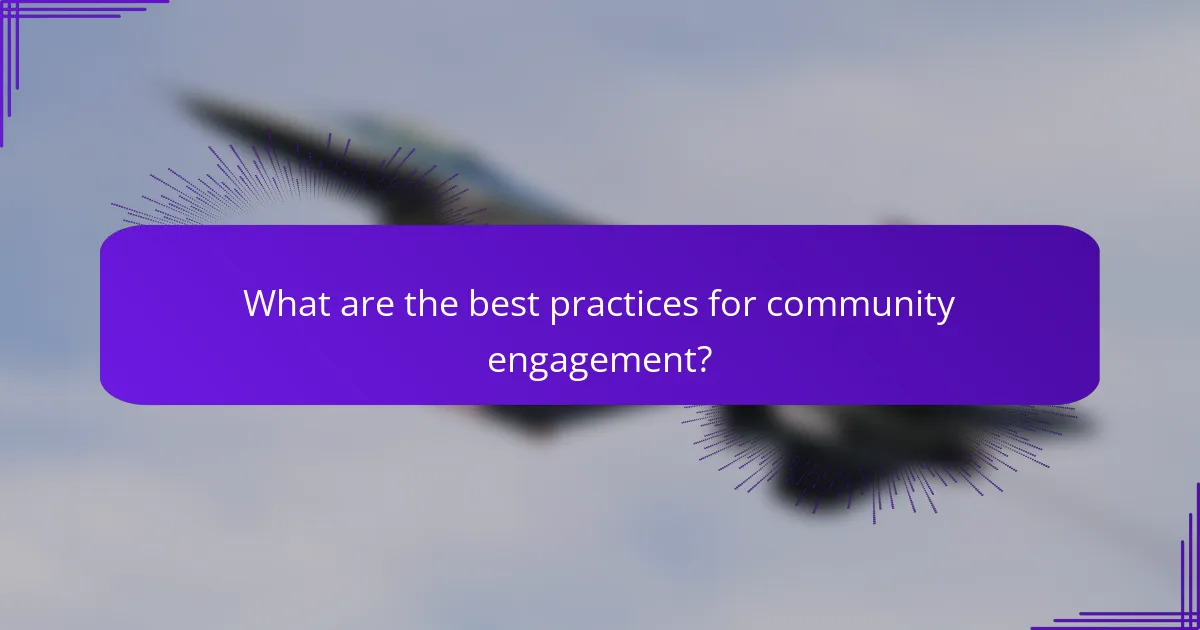
What are the best practices for community engagement?
Effective community engagement for paranormal investigation groups involves building relationships, fostering trust, and creating opportunities for interaction. Engaging the community can enhance visibility, attract new members, and promote a shared interest in local history and the paranormal.
Host local events and meetups
Organizing local events and meetups is a vital practice for community engagement. These gatherings can range from informal coffee chats to organized ghost tours or investigation nights. Aim to host events monthly or quarterly to maintain interest and participation.
Consider venues that are accessible and familiar to the community, such as local libraries, community centers, or parks. Promote these events through social media, local bulletin boards, and community calendars to reach a broader audience.
Collaborate with local historical societies
Partnering with local historical societies can enhance credibility and provide valuable resources for paranormal investigation groups. These collaborations can lead to shared events, where both groups can present their findings and engage with the community.
Joint projects may include historical tours, lectures, or exhibitions that highlight the area’s paranormal history. This not only enriches the community’s understanding but also strengthens ties between organizations with similar interests.
Offer educational workshops and seminars
Providing educational workshops and seminars is an effective way to engage the community and share knowledge about paranormal investigation techniques. Topics can include ghost hunting basics, the history of local hauntings, or the science behind paranormal phenomena.
Workshops can be tailored for different age groups or experience levels, ensuring that everyone from beginners to seasoned investigators can benefit. Consider offering these sessions at local schools or community colleges to reach a wider audience and foster interest in the field.
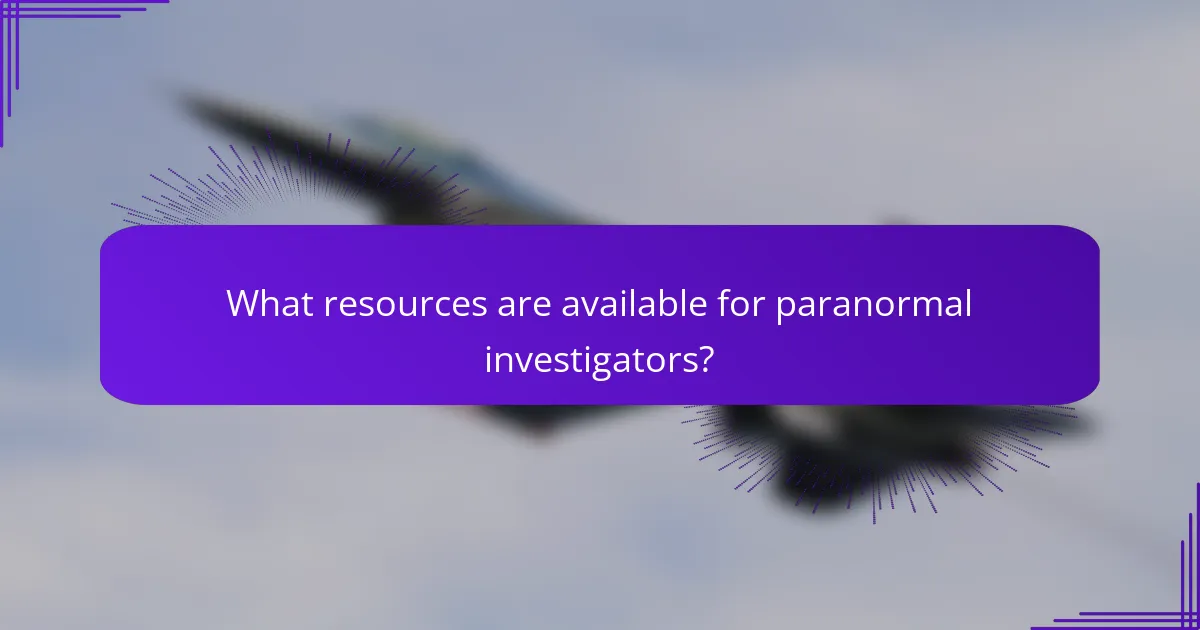
What resources are available for paranormal investigators?
Paranormal investigators can access a variety of resources that enhance their research and community engagement. These resources include online forums, recommended literature, and local suppliers for ghost hunting equipment.
Access to online forums and communities
Online forums and communities provide a platform for paranormal investigators to share experiences, techniques, and findings. Websites like Reddit, Ghosts and Ghouls, and specialized Facebook groups can connect you with fellow enthusiasts and professionals.
Engaging in these communities allows for real-time discussions and feedback on investigations. Look for forums that focus on your specific interests, such as ghost hunting, EVP sessions, or historical hauntings, to maximize your learning and networking opportunities.
Recommended books and documentaries
Books and documentaries are excellent resources for both novice and experienced paranormal investigators. Titles like “Ghost Hunting for Dummies” and documentaries such as “Paranormal State” provide insights into techniques and case studies.
Consider creating a reading list that includes both practical guides and historical accounts of hauntings. This will not only broaden your understanding but also inspire your investigative approach.
Local ghost hunting tools and suppliers
Local suppliers often carry essential ghost hunting tools such as EMF meters, spirit boxes, and infrared cameras. Check out local shops or online retailers that specialize in paranormal equipment to find what you need.
When purchasing tools, consider your budget and the specific types of investigations you plan to conduct. Many investigators start with basic equipment and gradually invest in more advanced tools as they gain experience.
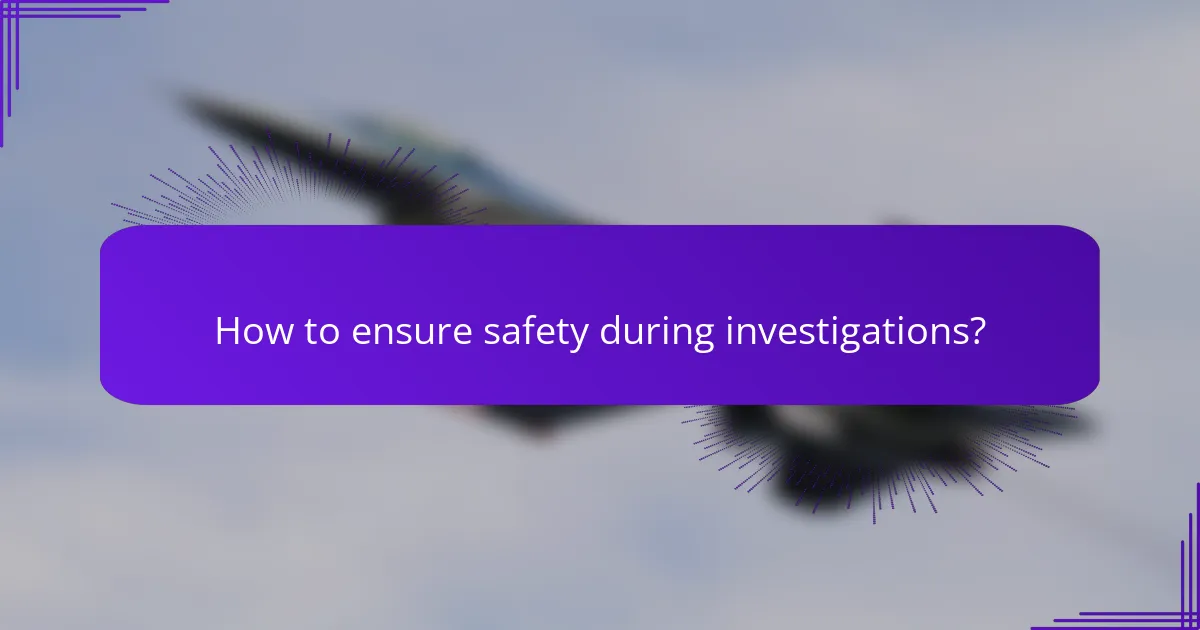
How to ensure safety during investigations?
Ensuring safety during paranormal investigations involves thorough preparation and adherence to established protocols. By assessing risks and implementing safety measures, groups can protect their members and enhance the overall experience.
Conduct risk assessments before investigations
Conducting risk assessments is crucial for identifying potential hazards associated with each investigation site. Consider factors such as structural integrity, environmental conditions, and the presence of hazardous materials. Engage all team members in this process to gather diverse perspectives on possible risks.
Make a checklist of common risks to evaluate, including unstable floors, wildlife encounters, and extreme weather conditions. This proactive approach allows you to develop strategies to mitigate identified risks, ensuring a safer investigation.
Establish safety protocols for group members
Establishing clear safety protocols helps ensure that all group members understand their responsibilities and the procedures to follow during investigations. Create guidelines that cover communication methods, emergency contacts, and first aid procedures. Regularly review and practice these protocols to keep everyone prepared.
Consider implementing a buddy system where members pair up to maintain accountability and support. This can be particularly useful in remote or unfamiliar locations, enhancing safety through teamwork and vigilance.
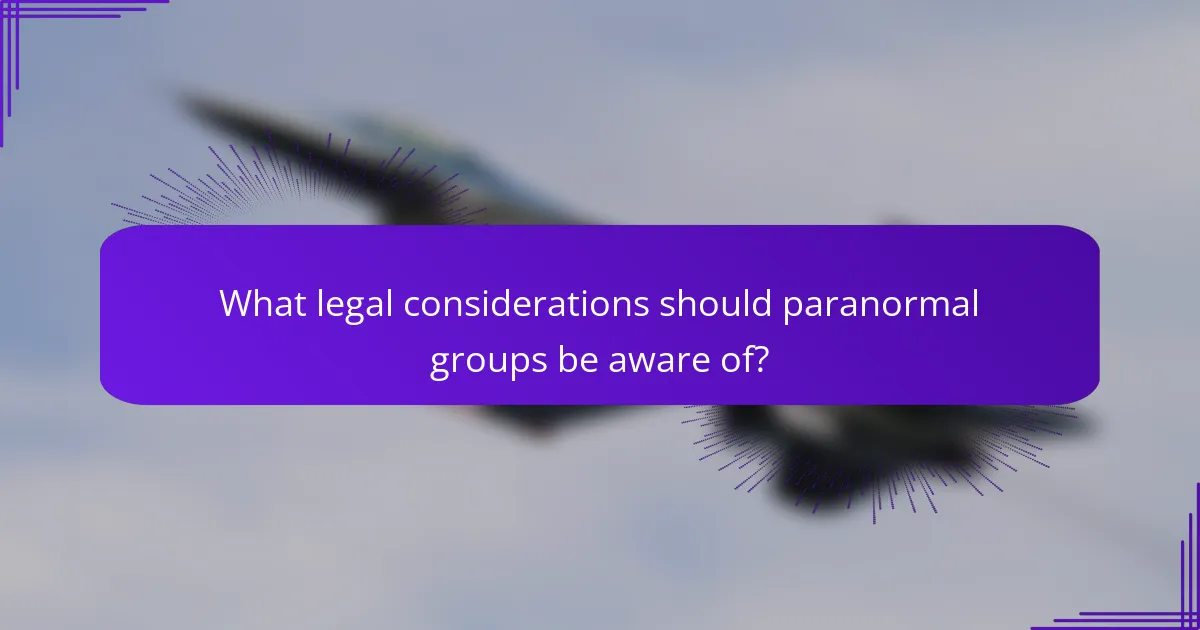
What legal considerations should paranormal groups be aware of?
Paranormal investigation groups must navigate various legal considerations to operate responsibly and ethically. Key areas include obtaining permissions for investigations on private property and understanding local laws regarding trespassing.
Obtain permissions for private property investigations
Before conducting any investigations on private property, it is essential to secure explicit permission from the property owner. This not only demonstrates respect for the owner’s rights but also protects the group from potential legal repercussions.
Documenting the permission in writing can be beneficial, as it provides a clear record of consent. This can include a simple agreement outlining the scope of the investigation and any specific conditions set by the owner.
Understand local laws regarding trespassing
Each locality has its own laws regarding trespassing, which can vary significantly. Familiarizing yourself with these laws is crucial to avoid legal issues during investigations. Trespassing typically involves entering a property without permission, which can lead to fines or other penalties.
In many areas, the law may allow for certain exceptions, such as emergency situations or public access to specific locations. Always verify local regulations and consider consulting a legal expert if unsure about the implications of your activities.
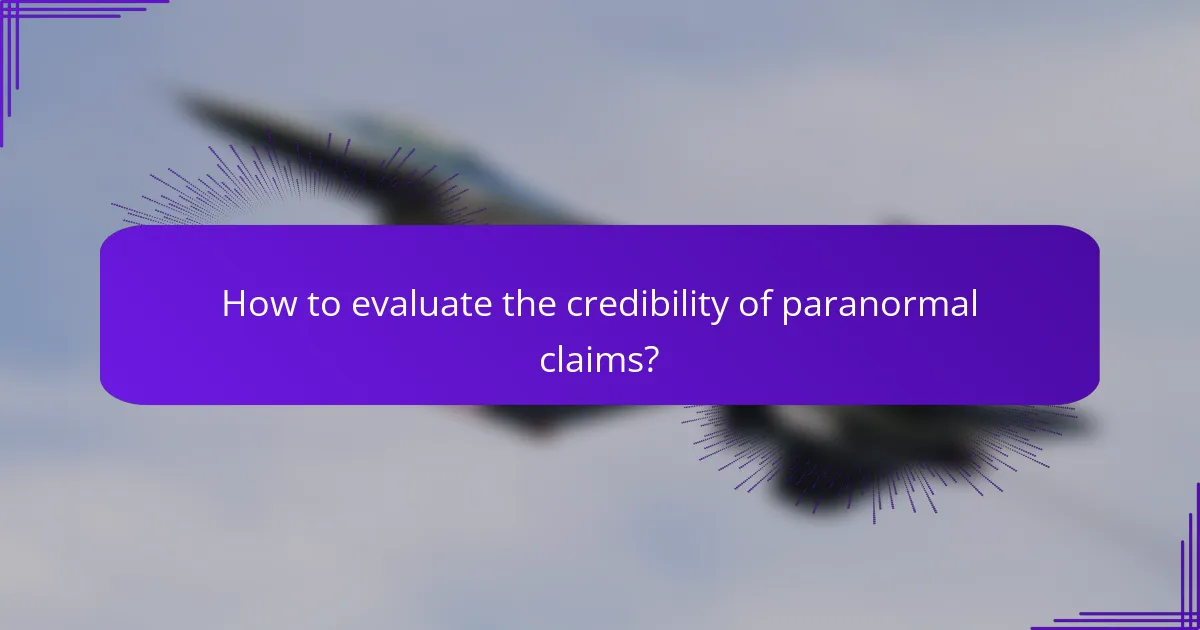
How to evaluate the credibility of paranormal claims?
To evaluate the credibility of paranormal claims, consider the source, evidence, and context surrounding the claim. Look for consistency in testimonies, the presence of physical evidence, and whether the claim can be replicated or explained by scientific principles.
Assessing the source of the claim
Start by examining who is making the paranormal claim. Credible sources typically have a background in research or a history of reliable reporting. Be cautious of claims made by individuals with a vested interest in sensationalism or financial gain.
Check for affiliations with established paranormal investigation groups or academic institutions. These organizations often adhere to specific standards and methodologies, lending more weight to their findings.
Evaluating the evidence presented
Evidence for paranormal claims can include photographs, videos, audio recordings, or eyewitness accounts. Analyze the quality of this evidence critically; low-quality or poorly documented evidence should be treated with skepticism.
Consider whether the evidence has been subjected to peer review or analysis by experts in relevant fields. Authentic evidence is often corroborated by multiple sources or can be independently verified.
Understanding the context of the claim
The context in which a paranormal claim is made can significantly affect its credibility. Investigate the circumstances surrounding the claim, such as the location, timing, and any potential psychological factors at play.
Be aware of local cultural beliefs and historical narratives that may influence perceptions of paranormal events. Understanding these factors can provide insight into whether a claim is rooted in genuine experience or local folklore.
